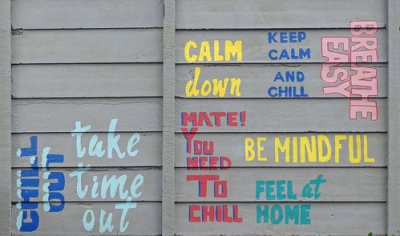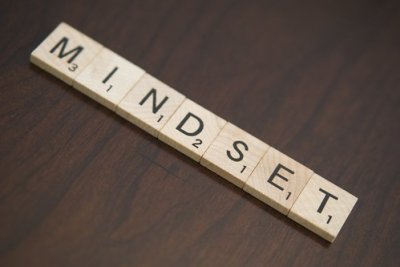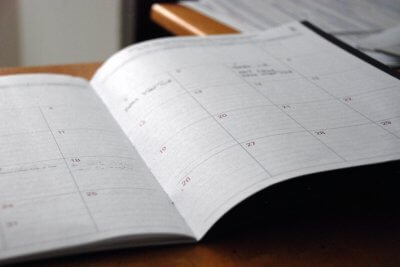Emotional Regulation Skills – How Not to Be at the Mercy of Your Feelings

By: Tim Green
by Andrea M. Darcy
Do your emotions see you acting out before you can stop yourself? Known for being impulsive, or even volatile? Emotional regulation skills don’t come naturally for everyone, but can be learned.
What is emotional self-regulation?
In our previous article, ‘Emotional Self-Regulation – Struggle to Stay Calm?”, we explained how it’s your ability to monitor and control your emotions, and thrive in spite of them.
If we grew up without consistent parenting, or lived through difficult circumstances as a child, our capacity to emotionally regulate can be poor, called ‘dysregulation‘. Our impulsive reactions can damage our relationships and career.
What are emotional regulation skills?
They include things like the ability to:
- think before you speak or act
- stay calm in the face of stress, pressure, and unexpected events
- not let other people get to you
- continue progressing towards your goals despite your emotions.
Start with your mindset
Sure you can never be that sort of calm, cool, and collected person? “I’ll always be crazy”, “It’s not possible for me to change”, “I am just unstable and damaged”…. is this the soundtrack of your mind?
Here’s the thing. You already regulate your emotions. For example, perhaps you have:
- not cried in a theatre even though a movie made you sad
- stayed strong as a friend needed you in a difficult circumstance
- hidden your own fear to comfort a younger sibling
- remained calm in a job interview when the employer was being rude.

By: Steve Davis
When stakes are very high, and we expect to be emotional, most of us can find some form of control. Now you just need to learn how to transfer this control into less expected situations.
Recognise you CAN do this. Skills are learnable. It takes time and patience, that’s all. You just need to learn and practice, then practise some more. If you mess up, then get up and try again.
Emergency emotional regulation techniques
When we are first learning how not to ‘freak out’ emotionally, emergency tactics can be a godsend.
Dialectical behaviour therapy (DBT) was created for people with emotional dsyregulation or borderline personality disorder (BPD).
It offers a scientific-based set of set of techniques for emotional tipping points, designed to knock you out of thought and emotions and into your body, which creates a small break that gives you the opportunity to choose a healthier reaction.
They are called ‘TIP skills’. Which stands for:
- Temperature of your face
- Intense aerobic exercise
- Paced Breathing and Paired Muscle relaxation.
It’s pretty much what it sounds like. When you feel yourself about to explode, you can:
- Hold your breath and plunge your face into cold water, triggering what is called the ‘human dive reflex’ (or try holding ice in your hand).
- Do about 20 minutes of aerobic exercise, at about seventy per cent of your ‘all out’ point.
- Breathe in a measured fashion right into your diaphragm and keep it up for several minutes (if you aren’t msure what your diaphragm is, put your hand on your upper belly. You need to breathe deeply enough your hand rises and falls). As you do this scan through your body, clenching then releasing a muscle with each in and out breath.
Read more details about how to properly use these techniques in our article, ‘Techniques to Stop Distress’.
The best emotional regulation skill out there?
You’ve probably heard of mindfulness now. And you might be wondering why it’s a big deal. It quite simply works, as shown by a now rather vast body of research. As far as emotional regulation issues go, mindfulness helps you to label and therefore step back from your emotional states.
A study using magnetic resonance brain imaging showed mindfulness leads to greater activation of the medial prefrontal cortex, the neural area that activates when we do self-related tasks, showing mindfulness does indeed lead to self awareness and an ability to step back from oneself.

By: Caleb Roenigk
But what IS mindfulness, really? It’s a daily practise where you learn to listen to how you think and feel here and now. With practise, you will be able to catch your thoughts and feelings before they get out of control, meaning you can choose better ways to respond to life’s stressors than lashing out or hurting yourself.
[Go learn mindfulness right now with our easy and free ‘Guide to Mindfulness‘.]
Other self-regulation tools that help
1. The power of five.
The idea here is that, ‘as we do one thing, we do everything’. And that we can ‘train’ our brains.
Look at all the ways in life you give in to impulse and start adding five minutes. A timer can help. If you are hungry, wait five minutes before eating your snack. Add five minutes to your cardio routine. Time five minutes before sending a text or email. Once you get used to five, try ten. The more you teach your brain to hold off, the more you might find you start holding off on emotional responses, too.
2. Thought balancing.
Mindfulness helps you hear your thoughts in the first place. But then what to do when you hear all the negative or critical things you come across? Or how can you even tell what thoughts are helpful or not?
Cognitive behavioural therapy (CBT) uses ‘thought charts’ to help you recognise when you are having having ‘cognitive distortions’, thoughts that seem real but actually aren’t. It then teaches you to replace such dramatic thinking with more useful thoughts.
Learn how now in our article, ‘Balanced Thinking‘.
Perspective hopping.
The more we are entrenched in one perspective, the less likely we are to understand others, the more likely we are to get defensive and emotional when we are challenged.
Life is like standing around a statue of an elephant. To us, the entire world looks like a trunk, to someone else, a tail. If we learn to walk around the statue, everything changes. Learn how using our article, ‘The Power of Perspective’.
Roleplay.
Family reunion ahead, and worried you will lose it yet again around a parent? It can be helpful to role play possible challenges with a trusted friend or partner (or even out loud by yourself if that’s the only option). And that doesn’t mean keeping it all positive. Sometimes it can help if you say all the angry, outrageous, or ridiculous things you want, assuming your friend or partner doesn’t mind the onslaught and you can laugh after!
Setting the groundwork for long-term regulation
 It’s important to recognise that we can make emotional regulation skills far more likely to be a success if we set the stage for them. The following can make things far easier.
It’s important to recognise that we can make emotional regulation skills far more likely to be a success if we set the stage for them. The following can make things far easier.
1. Create structure.
Structure in and of itself doesn’t stop emotional bursts, but it makes them less likely. And means you are less tired and stressed, so more able to navigate challenges when they do come.
2. Find a healthy way to let off steam.
It has to be what works for you, not what works for others. If that means freeform journaling, great. But it might also be hitting a pile of pillows, dancing around the living room, or having a punching bag in your garage for when the need arises.
3. Track and reward your wins.
Yes, trauma might have left your brain designed to overreact to stress. But it won’t have affected the fact that our brains are designed to work for reward. Use this to your advantage by tracking and celebrating your wins, no matter how small. You didn’t roll your eyes at your colleague. You didn’t give the driver in front of you the finger. Write it all down in a notebook reserved just for this purpose. And give yourself a reward for every ten wins.
4. Have support.
Yes, trying therapy is the ideal situation. But you might also attend a free support group, or be in a twelve-step group, or an online group. Or find a support buddy. Not your romantic partner (that’s a one-way road to codependency) but someone else also working on their emotions, so you can jointly ‘hold the space’ for each other.
5. And yes, up that self-care.
We aren’t talking about going to the spa here. We are talking about getting sleep instead of staying up to play video games. Eating healthy foods that lead to even energy instead of living off of soft drinks. The simple fact is that it’s very hard to stay calm and collected if we are exhausted and jittery. And exercise, by the way, is now proven to go a long way for stabilising moods.
Can therapy help me learn emotional self-regulation skills?
Absolutely. It’s really at the core of most types of talk therapy, particularly:
- acceptance and commitment therapy (ACT)
- cognitive behavioural therapy (CBT)
- dialectical behaviour therapy (DBT)
- emotion-focused therapy (EFT
- mindfulness-based cognitive therapy (MBCT).
Ready to stop letting your emotional outburst ruin your life? Harley Therapy connects you with highly rated London-based therapists in our central London clinics. Or for a more affordable option, find a registered UK therapist for online therapy via our HarleyTherapy.com booking platform now.
 Andrea M. Darcy is a mental health and wellbeing expert with training in person-centred counselling and coaching. She has written thousands of popular psychology articles and also works as a consultant helping people plan their perfect therapy journey. As a highly sensitive person, she has tried and tested all these emotional regulation skills herself! Find her on Instagram @am_darcy
Andrea M. Darcy is a mental health and wellbeing expert with training in person-centred counselling and coaching. She has written thousands of popular psychology articles and also works as a consultant helping people plan their perfect therapy journey. As a highly sensitive person, she has tried and tested all these emotional regulation skills herself! Find her on Instagram @am_darcy




